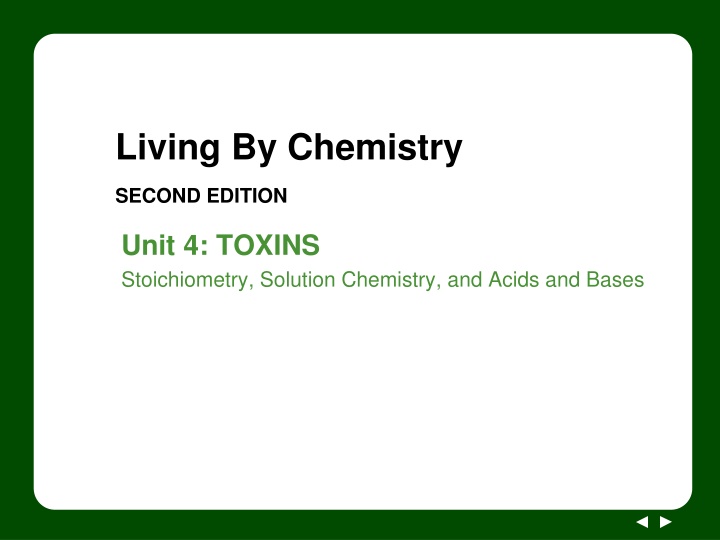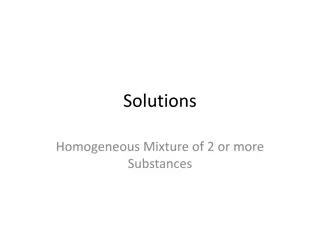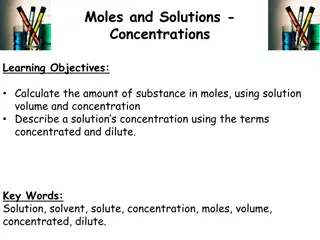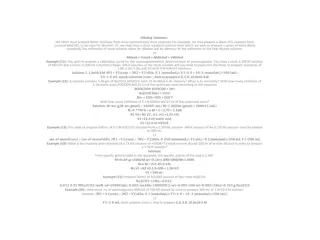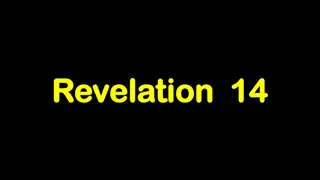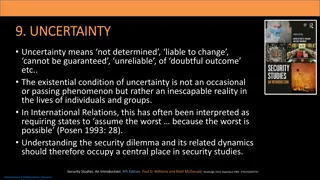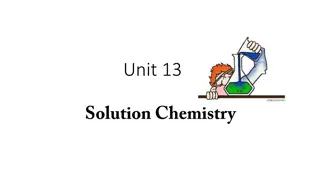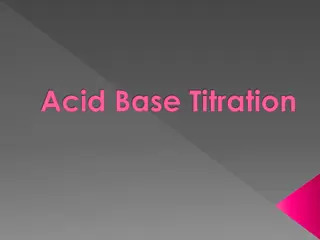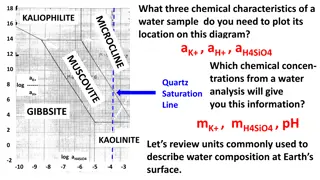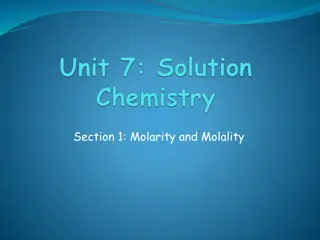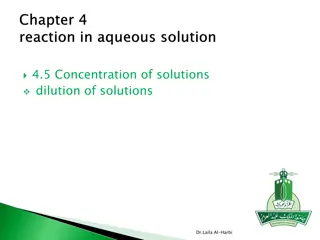Solving Molarity Dilemma: Making Solutions
Dive into the world of stoichiometry, solution chemistry, and acids and bases with Unit 4 of "Living By Chemistry" where you will explore preparing solutions, calculating molarity, and determining solute masses. Learn how to create solutions with specific molarity and avoid disasters in scenarios like saltwater aquariums. Work in groups, discuss potential errors, and understand the relationship between moles, molarity, and mass in solutions.
Download Presentation

Please find below an Image/Link to download the presentation.
The content on the website is provided AS IS for your information and personal use only. It may not be sold, licensed, or shared on other websites without obtaining consent from the author.If you encounter any issues during the download, it is possible that the publisher has removed the file from their server.
You are allowed to download the files provided on this website for personal or commercial use, subject to the condition that they are used lawfully. All files are the property of their respective owners.
The content on the website is provided AS IS for your information and personal use only. It may not be sold, licensed, or shared on other websites without obtaining consent from the author.
E N D
Presentation Transcript
Living By Chemistry SECOND EDITION Unit 4: TOXINS Stoichiometry, Solution Chemistry, and Acids and Bases
Lesson 82: Holey Moley Preparing Solutions
ChemCatalyst Imagine that you want to make 5 L of 0.60 M NaCl solution for a saltwater aquarium. You need to determine the correct mass of NaCl needed to obtain the correct concentration, or the fish will die. a. What information do you have? b. What information do you need?
Key Question How can you make a solution with a specific molarity?
You will be able to: calculate the amounts necessary to create a solution with a desired volume and molarity determine the number of grams of solute in a sample with a specific volume and molarity
Prepare for the Lab Work in groups of four.
Discussion Notes You can use a hydrometer to measure the density of a solution. The 0.60 M solution comes closest to resembling ocean water. There are several possible sources of error in this experiment.
Discussion Notes (cont.) Molarity relates moles and liters. Molarity = moles/liters If you know the molarity of a solution and the size of the sample, you can calculate the number of grams of substance dissolved in that solution. Grams = moles molar mass
Wrap Up How can you make a solution with a specific molarity? In order to calculate the amount of solute needed to make a solution with a certain molarity, you must use the molar mass of the solute to convert moles to mass. Solutions of specific concentrations can be made by weighing out the appropriate amount of the substance dissolved in the solution. If you know the molarity and volume of a sample of solution, you can figure out the mass of the dissolved substance in that sample.
Check-In How many grams of salt are in 0.100 L of 2.50 M NaCl?
